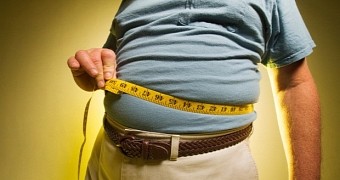They might taste positively divine, but pizza, hamburgers, steaks and other high-fat foods of their kind also have this annoying habit of clogging arteries and causing all sorts of health trouble.
Now, a recent study published in the science journal Heliyon describes how a high-fat diet can also transform the brain and, in doing so, trigger an increase in appetite.
Unless dealt with sooner rather than later, this increase in appetite can translate into overeating, which, in turn, can lead to obesity and all the medical complications that come with it.
“A high fat diet causes people to eat more, which ultimately impairs the ability of obese people to successfully control their caloric intake,” warns Vanderbilt University researcher Aurelio Galli.
How high-fat food affects the brain
As part of their investigation into how diet influences appetite and consequently body weight, the Vanderbilt University research team fed laboratory mice a high-fat diet for a prolonged period of time.
They found that, in response to having high-fat foods take the place of the snacks and treats they would normally feast on, the rodents started overeating. Eventually, they grew to be obese.
Scientist Aurelio Galli and fellow researchers say this happened because all the high-fat food they ate affected a specific signaling pathway in the brain, i.e. insulin signaling.
Usually, the body's food intake is kept in check by a fine balance between survival needs and the pleasure derived from what food smells or tastes like, the specialists explain.
Evidence obtained while experimenting on mice indicates that, when insulin signaling is disrupted in the brain, the built-in reward mechanisms kick into overdrive. This results in overeating and obesity.
This reward eating behavior that is triggered by high-fat snacks does not mean simply craving more food. Au contraire, it means wanting more of the treats that transformed the brain to begin with.
“Our study shows that when specific signaling in these areas of the brain is disrupted, it leads to a vicious cycle of increasing, escalating high-fat diet intake that likely further cements changes in these brain areas,” says Aurelio Galli.
Otherwise put, it would seem that the more high-fat food an individual consumes, the less they eat for survival and the more they eat for pleasure. In time, this hedonistic take on life leads to overeating and ultimately obesity.
Scientists hope to reverse these changes
Now that they know how eating a high-fat diet transforms the brain and makes it crave more fatty foods, the Vandelbilt University researchers hope to find a way to regain control over insulin signaling and, consequently, appetite.
They say the matter is all the more pressing seeing as, since 1980, global obesity has more than doubled, Science Daily informs. It is estimated that around 2 billion people across the world are currently overweight, with 600 million of them qualifying as obese.
While it is true that changing food trends, economic stress and lifestyle all have a say in the matter, it looks like our very brain can be hijacked by unhealthy diets and made to lose control over food intake.

 14 DAY TRIAL //
14 DAY TRIAL //